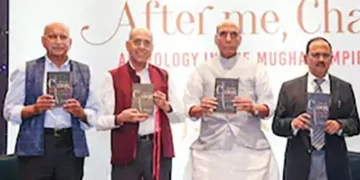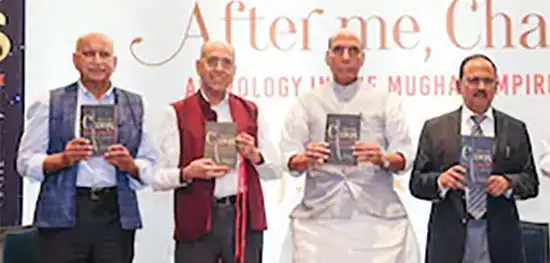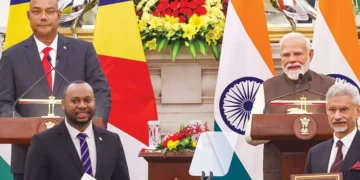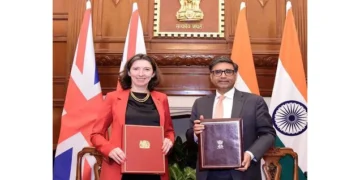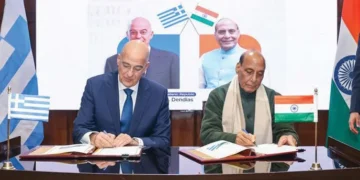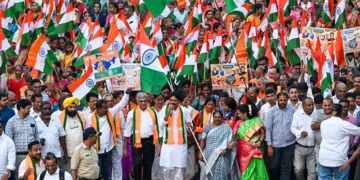Blitz Bureau
NEW DELHI: DEFENCE Minister Rajnath Singh on October 6 hailed India’s growth story and stability, while also pointing that no country was sure about the future of neighbouring Pakistan. He was speaking at the launch of former Minister of State (MoS) for External Affairs MJ Akbar’s book, “After Me, Chaos: Astrology in the Mughal Empire” in New Delhi. Singh said that India, currently the fourth-largest economy, is set to become the third-largest in the world soon. “At present, India is the fourth-largest economy in the world. India is heading towards becoming the third biggest economy by 2030. As per average growth rates by the IMF, India is on the way to becoming the world’s second-largest economy in terms of purchasing power parity (PPP) by 2038,” Singh said. Among those who attended the event included National Security Advisor Ajit Doval, Union Minister Jyotiraditya Scindia, and Bihar Governor Arif Mohammad Khan. Highlighting India’s relative steadiness in the region, Singh said that unlike some of the South Asian nations, India’s transformative reforms in the last 11 years have fostered enduring stability and accelerated economic progress.
Singh also referred to MJ Akbar’s earlier description of Pakistan as a “toxic jelly state” — a nation perpetually teetering on the edge of instability yet never completely collapsing.
Akbar had mentioned the term in his 2012 book ‘Tinderbox: The Past and Future of Pakistan’. “Considering Pakistan’s current state, only the Almighty knows what the future holds for it. I don’t want to talk about the future,” Singh further said.
Speaking to ANI, Akbar said Pakistan was a dysfunctional state because it had abandoned the cultural inheritance of the Indus Valley Civilisation.
“Therefore, it has created an artificial society that has become brittle… A jelly state is something that always remains unstable. Butter will melt, jelly will not melt. However, a jelly will never be stable. Because it is a nuclear power, it will be a toxic jelly state,” he said.
The book chronicles the deep faith of Mughal kings in astrology and how it was then an intrinsic part of statecraft. Speaking at the launch, Scindia praised Akbar’s conversational style of writing that makes history breathe again and the dedicated research that goes into his books. “He is a maker of narratives who has opened locked rooms in our collective memory,” Scindia said, adding that astrology sits on the uneasy border of precise calculation and human faith.
Doval said Akbar’s book gives insights into how important decisions were made in the Mughal times. The emperors of the time, he said, were “suffering from a deep sense of insecurity” and such people tend to find solutions for that, referring to the influence of astrology on their lives.v
